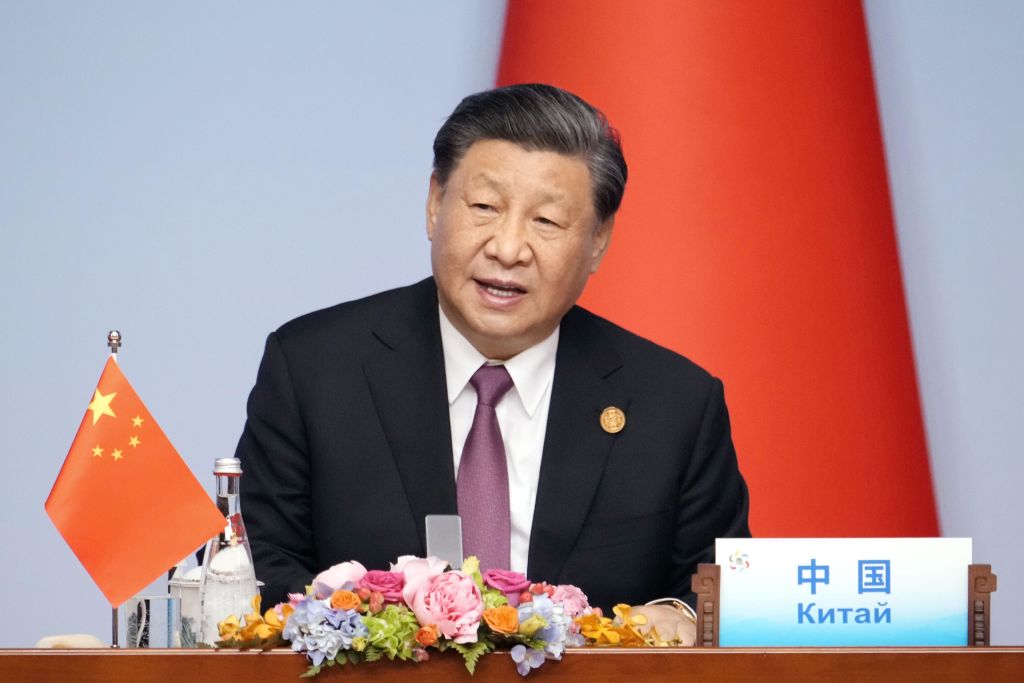The real reason the Pentagon is sounding the alarm over China's hypersonic missile


A free daily email with the biggest news stories of the day – and the best features from TheWeek.com
You are now subscribed
Your newsletter sign-up was successful
Chairman of the Joint Chiefs of Staff General Mark Milley, the top-ranking U.S. military officer, warned Wednesday about a scary-sounding new "hypersonic" missile. "I don't know if it's quite a Sputnik moment, but I think it's very close to that," he said in an interview, referencing the famous Soviet satellite. Supposedly these weapons are faster, more accurate, and harder to detect than any previous nuclear weapon.
Milley is wildly exaggerating. As Cameron Tracy from the Union of Concerned Scientists explains in detail, a hypersonic missile is essentially little different from the intercontinental ballistic missiles (ICBMs) that have been around for decades. They are not much faster, or stealthier, or immune to detection. And while a hypersonic missile would be nearly impossible to shoot down, that is already true of ICBMs which themselves can travel at 20 times the speed of sound. Tests of anti-ballistic missile technology under ideal conditions have worked sometimes and failed sometimes, but a realistic massed attack of multiple-warhead missiles would be impossible to defend against.
Even if all the most Elon Musk-esque hype about this hyper-missile were correct, it would change nothing whatsoever about the logic of nuclear competition. Even if China actually could destroy every single American city and nuclear installation in one swift strike with 100 percent certainty, they would still face the existential threat of retaliation from nuclear submarines — not to mention nuclear winter, plus the fact that the Chinese economy would collapse instantly without America buying its exports. The logic of mutually-assured destruction which kept the USSR and America out of war for 40 years holds.
The Week
Escape your echo chamber. Get the facts behind the news, plus analysis from multiple perspectives.

Sign up for The Week's Free Newsletters
From our morning news briefing to a weekly Good News Newsletter, get the best of The Week delivered directly to your inbox.
From our morning news briefing to a weekly Good News Newsletter, get the best of The Week delivered directly to your inbox.
The real reason Milley is whipping up panic can be found later in the interview: "We're going to have to adjust our military going forward," he said. That is code for spending trillions and trillions of dollars on our own fancy hyper-weapons that also serve no strategic purpose (and in all probability won't even work).
With the decline in worries about terrorism, the military-industrial complex needs a new bogeyman to justify the preposterously bloated and wasteful Pentagon budget. A new cold war against China would fit that bill. So there is a danger of hypersonic missiles — that they will be used to whip up fear in both China and the U.S., and lead those countries to waste ludicrous sums on pointless murder gizmos that would be better spent helping their own citizenry.
A free daily email with the biggest news stories of the day – and the best features from TheWeek.com
Ryan Cooper is a national correspondent at TheWeek.com. His work has appeared in the Washington Monthly, The New Republic, and the Washington Post.
-
 The environmental cost of GLP-1s
The environmental cost of GLP-1sThe explainer Producing the drugs is a dirty process
-
 Greenland’s capital becomes ground zero for the country’s diplomatic straits
Greenland’s capital becomes ground zero for the country’s diplomatic straitsIN THE SPOTLIGHT A flurry of new consular activity in Nuuk shows how important Greenland has become to Europeans’ anxiety about American imperialism
-
 ‘This is something that happens all too often’
‘This is something that happens all too often’Instant Opinion Opinion, comment and editorials of the day
-
 Despairing husband creates 'Taylor Swift jar'
Despairing husband creates 'Taylor Swift jar'Tall Tales And other stories from the stranger side of life
-
 Urine video dents Chinese beer brand
Urine video dents Chinese beer brandTall Tales And other stories from the stranger side of life
-
 10 things you need to know today: July 8, 2023
10 things you need to know today: July 8, 2023Daily Briefing White House defends controversial delivery of cluster bombs to Ukraine, Yellen urges economic harmony between China and US, and more
-
 The China-Cuba connection, explained
The China-Cuba connection, explainedSpeed Read Reports of an eavesdropping deal roil Washington
-
 US confirms China has been spying from Cuban base
US confirms China has been spying from Cuban baseSpeed Read
-
 Xi Jinping tells national security team to prepare for 'worst-case scenario'
Xi Jinping tells national security team to prepare for 'worst-case scenario'Speed Read
-
 Can the US stop Chinese cyberattacks?
Can the US stop Chinese cyberattacks?Today's Big Question Chinese hackers reportedly outnumber FBI cyber personnel by a ratio of 50 to 1
-
 China plans to land astronaut on the moon by 2030, official says
China plans to land astronaut on the moon by 2030, official saysSpeed Read
